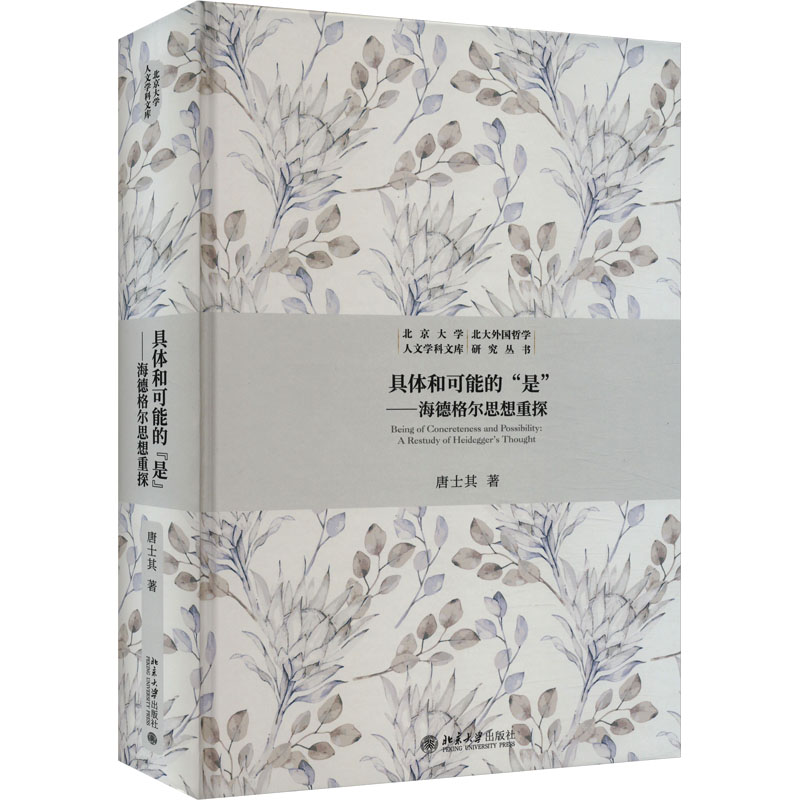 Title: Being of Concreteness and Possibility: A Restudy of Heidegger’s Thought
Title: Being of Concreteness and Possibility: A Restudy of Heidegger’s Thought
Author: Tang Shiqi
Publisher: Peking University Press
Publication Date: January 2024
Book Introduction
This volume is an important monograph in the Peking University Humanities Library: Series on Foreign Philosophy Studies. Centering on Heidegger’s ontology of “Being,” the book reconstructs his thought. The author argues that it was not until Heidegger that Western intellectual history, for the first time, explicitly raised the fundamental questions: What is it that makes a thing what it is? How is it able to be what it is? And in what way does it be its whatness—that is, the truth of essence and the essence of truth?
Heidegger’s inquiries point toward the conditionality, concreteness, mutability, and possibility of Being, thereby challenging the foundations of traditional Western metaphysics. In doing so, Heidegger not only opened up a potential path for overcoming the crisis of contemporary Western thought, but also offered the possibility of fundamentally reshaping the basic direction of human thinking.
Being of Concreteness and Possibility: A Restudy of Heidegger’s Thought is not a general survey or synthesis of existing Heidegger scholarship. Rather, it is an attempt to reconstruct his thought from the perspective of ontology. Naturally, adopting a definite standpoint allows certain dimensions of Heidegger’s philosophy to be highlighted more clearly, while inevitably obscuring others that may be equally important—this is the price inherent in theoretical work.
The author emphasizes that the concreteness, mutability, and possibility of Being constitute the core of Heidegger’s ontology. Heidegger’s call for “another beginning” implies a re-appropriation of the relationship between human beings and things, between history, the present, and the future, so as to create an entirely new mode of thought. From this vantage point, the essential characteristic of Western metaphysics is revealed: its attempt to define the essence of humans and things from the standpoint of universality, invariability, and determinacy. Many aspects of Heidegger’s thought that once seemed obscure, paradoxical, or self-contradictory become comprehensible in this light, while the problem of nihilism acquires an entirely new meaning.
Moreover, this interpretation of Heidegger resonates strikingly with themes in traditional Chinese philosophy, suggesting the potential for future intersections and mutual illumination between the two great traditions of thought.
(Excerpted from the Postscript of Being of Concreteness and Possibility: A Restudy of Heidegger’s Thought) *